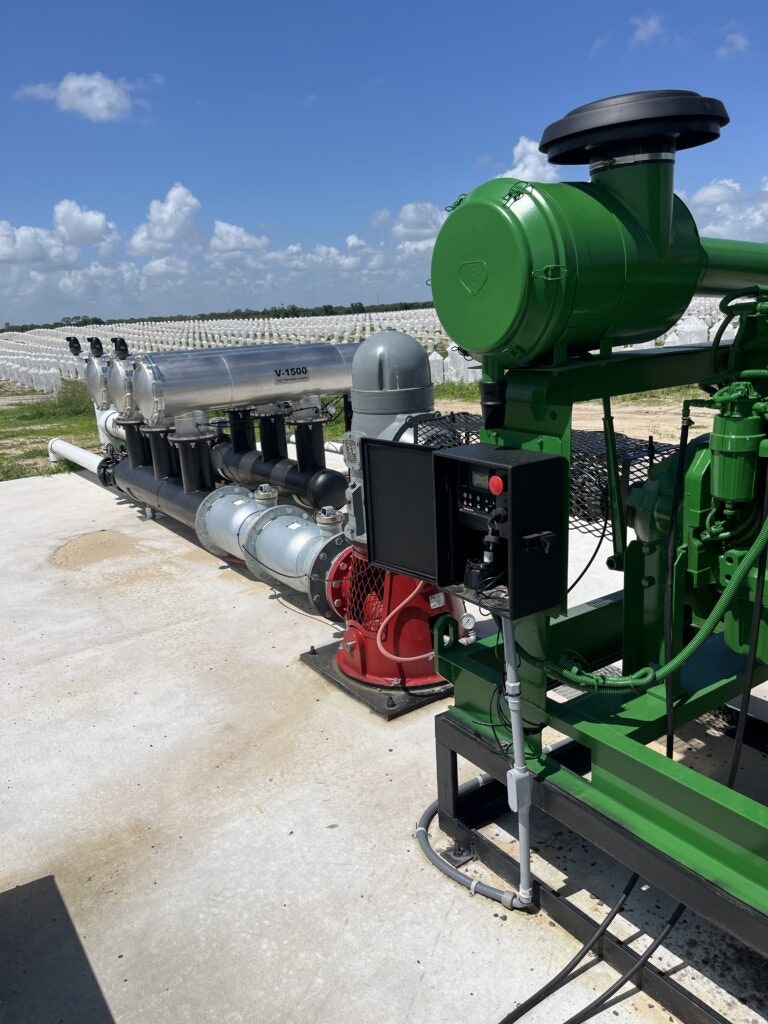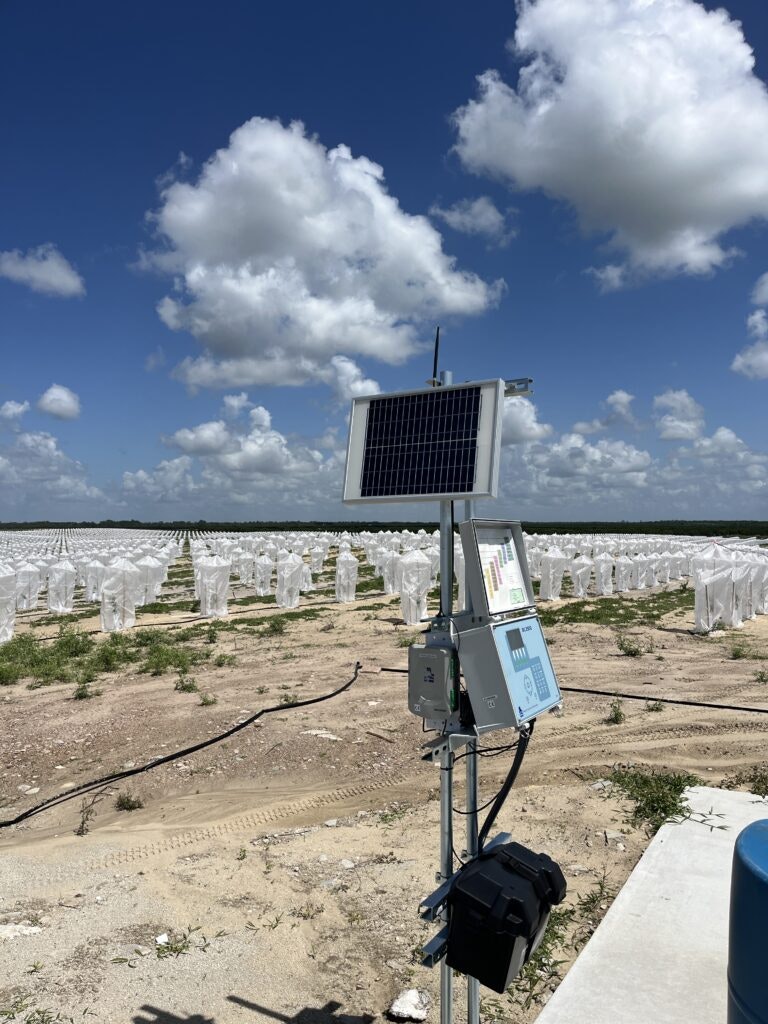As Noble Ag Nears Its Centennial, Technology Keeps It Competitive

July 11, 2024
by PAUL CATALA
Nearly 100 years ago, the citrus industry worked differently. In 1926, when W.G. Roe founded Wm. G. Roe & Co., citrus growing, cultivating, harvesting and processing were done almost entirely by hand.
Through the decades, those processes have evolved through the advent of technologies that have sped up the processes of getting fruit from the tree to the table.
Many of those innovations in citrus growing and management are used every day at Noble Ag in Winter Haven.
Noble Ag has groves covering more than 3,500 acres, supporting more than 80 jobs.
Geoff Roe, 37, great-grandson of W.G. Roe and vice-president of Noble Ag, says the constantly evolving technology and innovation within the citrus industry has become an integral part in solving the challenges of modern citrus growing and harvesting. He says technological improvements help ensure the sustainability of Florida agriculture “so that we can continue to produce quality food for family tables across the state, throughout the nation and around the world.”
IMPROVED IRRIGATION
Technology has allowed Noble Ag to remotely control and monitor automated irrigation systems with “the click of a button,” he says.
Roe — who says the Noble Ag company name was conceived as a marketing brand — says radio transmission and wireless cellular technology have really helped the company remain competitive during the past decade.
For example, in the past, in order to open an irrigation valve that controls water flow from a central location a quarter mile or more away, a hydraulic line underground to the valve was necessary. Roe says those can easily be cracked or damaged and become useless. However, cellular connection at the engine coupled with a solar panel and radio communication next to the field valve allows the valve to open without a physical connection. He adds “damage often occurs” when 40 psi of water pressure at 2,000 gallons per minute gets to the valve and it doesn’t open, so it’s critical for the system to operate properly.
Ten or more years ago, Roe says grove workers would have to go into the grove to delay irrigation cycles to prevent overwatering if rainfall was imminent. He says that process was inefficient, time-consuming, and expensive – a high-cost burden in the ready-to-eat citrus category.
“It’s taken really until the last 10 years for those radio communications to become reliable enough to depend on,” he says. “The technology is now there to get reliable communication to that valve where it opens all the time.”
Additionally, the new technology allows growers to use existing systems that are outdated, to be retrofitted with field valves and modern engines.
“Now,” he explains, “you can operate hundreds, if not thousands, of citrus acres from one pumping station, similar to a home sprinkler system,” instead of having to have 10 wells to run a big farm in a single farm. The technology also provides soil moisture and rainfall monitoring for more efficient water use. When regular irrigation is consolidated to less pumping stations, farmers can invest in more fuel-efficient engines for just a few wells instead of every station.
“Growers have been expanding the use of this technology aggressively for the past many years. In the last 10 to 15 years, the state has done a commendable job of providing cost-share money to convert systems over for better efficiency,” says Roe.

ADVANTAGE IN THE SKY
Another technological advancement Noble Ag uses is drones. In May, the company began its first drone applications of pesticide. He says currently, the cost efficiency is viable for some applications, others not so much. He says any herbicide or pesticide that has a low-use rate per acre in terms of pounds, like ant bait, is equally efficiently applied using drones as an airplane.
One real advantage with drones is the ability to make flights on small acreage where an airplane traditionally cannot fly.
“A drone doesn’t have a high payload capacity, but it can still cover 20 or 30 acres in one flight in certain applications,” he says.
Roe says Noble Ag specializes in tangerines, with farms found between Polk and Glades counties; tangerines account for 95 percent of the company’s acreage.
EYES ON THE FUTURE
Another technological enhancement to his citrus operations Roe has his eye on is a field-ready, high resolution camera system that can accurately estimate crop volume, size, and quality in advance of harvest. He says the system, currently used in growing apples, is attached to farm equipment and captures field images daily. The images are then compressed and remotely uploaded, and the process occurs again the next day. This data would allow Noble Ag staff to adjust inputs earlier in the crop year than traditionally possible.

Roe says there is incredibly advanced technology not yet widely used, like row layout and development using GPS software to mark where underground irrigation infrastructure is placed. This allows for less expensive installations. He says he believes the use of Clustered Regularly Interspaced Short Palindromic Repeats (CRISPR) to capitalize on desirable crop traits will become more common. That is done by introducing DNA from nature-generated genetic variations within the crop itself, and not from another reproductively incompatible organism. The result is better genetics to help fight citrus greening.
He also expects artificial intelligence to be more widely used to better understand soil samples and how to direct the smart sprayers, track inventory, determine different options in battling diseases and pests and help farmers be the best land stewards.
“Basically, to be competitive on a worldwide scale,” Roe explains, “we have to keep up with technology. It’s the only way to keep competitive.”
